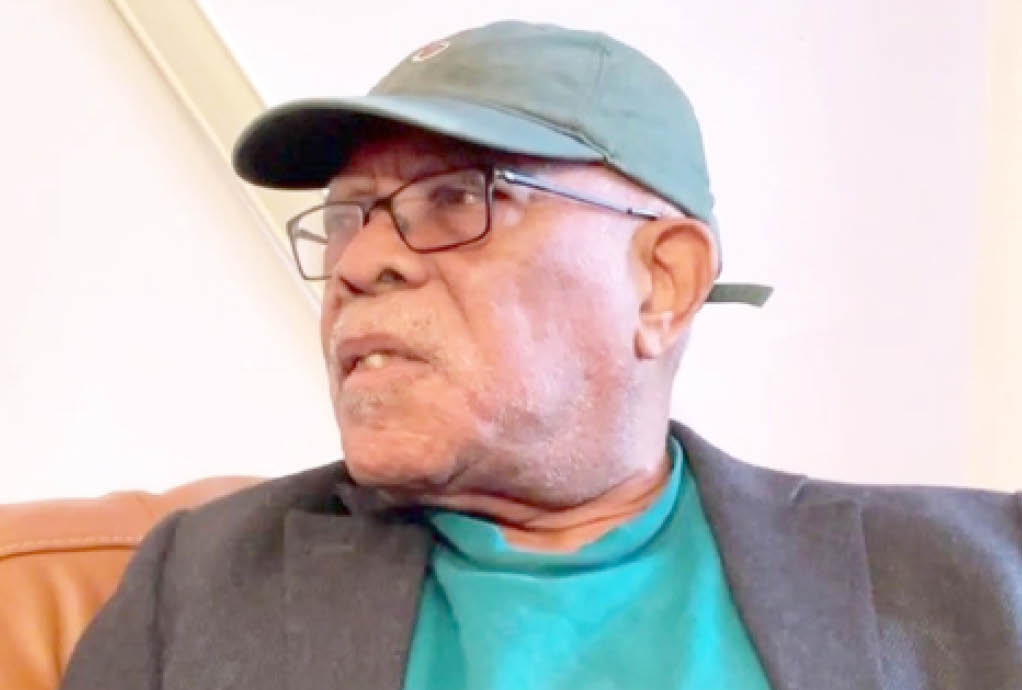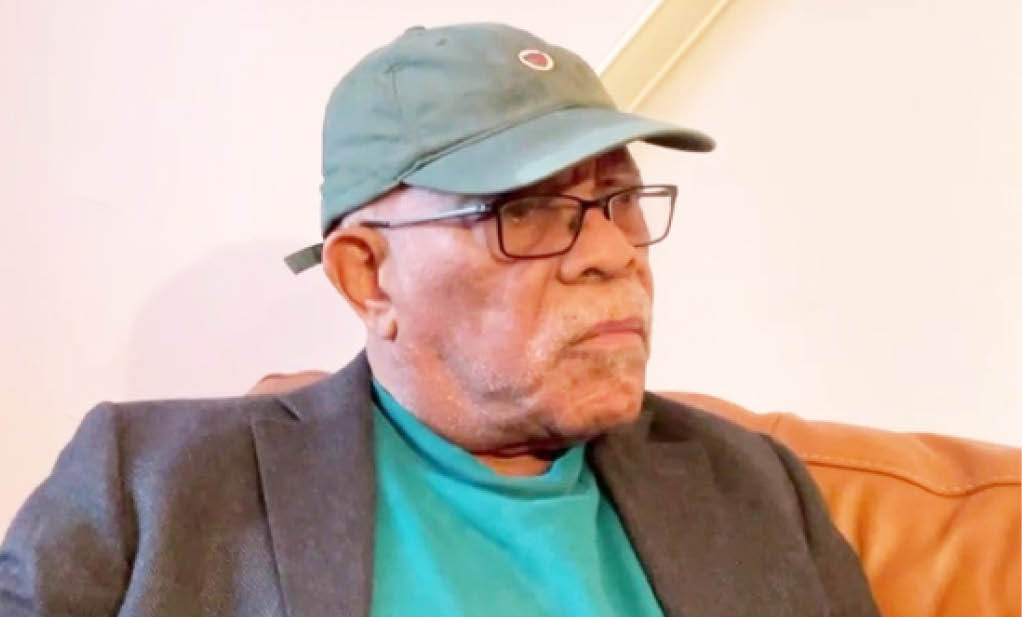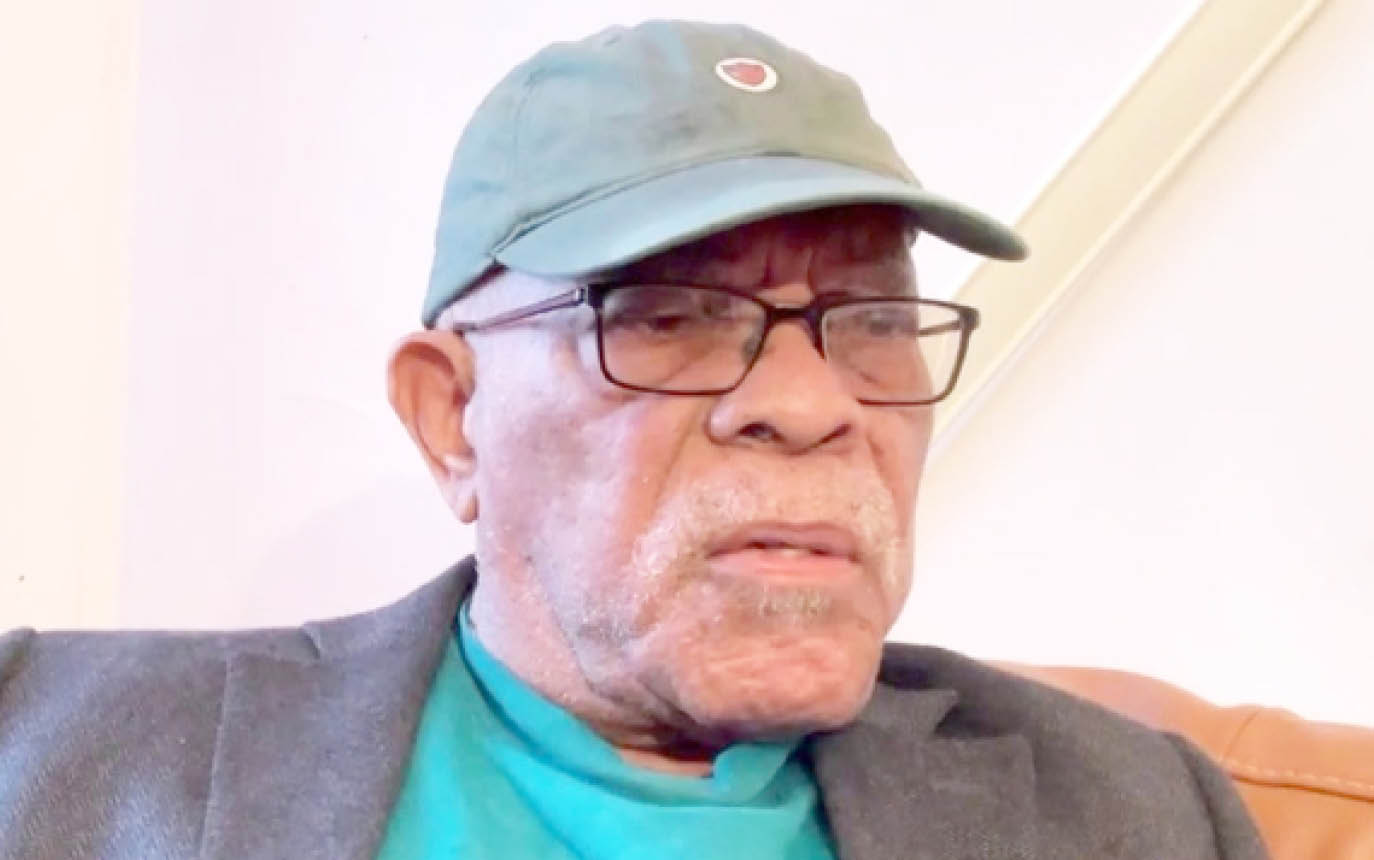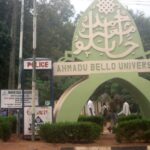Dr Patrick Wilmot is a Jamaican who spent 18 years teaching Sociology at the Ahmadu Bello University, Zaria in the 1970s before he was sent out of the country during the government of General Ibrahim Babangida. Since then, he has been in London as a commentator on African affairs, writer of many books and member of the Transparency International, which monitors corruption in Africa. In this interview he spoke on his experiences in Nigeria and why he cannot live in the country again.
Let’s take you back to your early years; did you grow up in Jamaica?
Yes. I went to primary and secondary schools in Jamaica, then university in America.
How much of schooling did you do in Jamaica, just primary school and secondary school?
Primary and secondary school.
Can you tell us a little bit about your family background?
My family was very poor. Sometimes I lived in places where there was no electricity, no running water, so it was difficult to do homework. I started reading when I was quite young, went to the library all the time and I used to read popular books like the Tarzan, The Lone Ranger, the Hardy Boys. I finished reading these books after a short time, then I started reading books by Engels, by Freud; I read Marx…
Dilapidated Power Plants, Erratic Supply Stunt Nigeria’s Economy
Why global access to justice study is impacting societies and economies
This was still in secondary school?
Even before I went to secondary school, I was reading all kinds of books. I took an exam when I was staying with my grandmother in the country.
In Jamaica?
In Jamaica, and it was not a very good school, so I didn’t pass the exam. The following year they said I should take the exam again but I said no because if I took it again I would fail. I took a more advanced exam and came second in Jamaica; after that I got a scholarship.
The first term I was there I came second in the school, and for the rest of the terms I came first. I got a full scholarship to Yale University, then from Yale I went to Vanderbilt University.
So, these scholarships gave you the opportunity to leave Jamaica and go to the US?
Yes.
Whose scholarship was this?
Yale University has so much money, so they could afford to give me full scholarship, including accommodation, clothing, my airfares, everything.
How old were you when you went to Yale?
I was 19 years. At the time secondary schools finished in December and Yale began in October, I went to teach in boys’ school for a year. I went there when I was 19 years old.
Which year was this?
1962.
How was the experience from Jamaica, from a rural poor background to this great citadel of learning in the US?
I had no problem at all. I never forgot about where I came from. I was in school with boys whose parents were billionaires. George Bush (former US president) was two years behind me. I was in the same class with John Kerry (former US Secretary of State). We used to play football together.
What happened after you graduated from Yale University?
I got a full scholarship to Vanderbilt University. It was a university in the south of the country, Nashville, Tennessee. I did very well there and got this scholarship, then a fellowship, where they paid all my tuition and accommodation. At the time I was given 250 dollars a month, in 1966.

You were doing your master’s?
Master’s and PhD. I got a full scholarship to Vanderbilt, but while I was there, there was this fellowship in the graduate school, about 3,000 people applied and I think about 15 people got the fellowship. I mean the best fellowship in the US at the time. I spent some time at Nashville and went down to California, then I went to Paris. This was financed by the university.
Did you experience any problem, discrimination and things like that, which were unpleasant?
Not at all.
As a Jamaican?
Anybody who knows me knows that you don’t mess with me. If you do something to me I would do something ten times worse to you. So I never had any problem with white people.
If they were polite, it was okay, but if they tried to be nasty, they knew that I had a very nasty mouth. I also wrote for the school newspaper and was strong against the Vietnam War, and I wrote against that. And if anybody tried to attack me in the newspapers, I would go after them. So I never had any problem at all.
After Vanderbilt you were a brand new PhD scholar, did you stay to teach in the US?
No; I was offered jobs in the US, but when I was in Paris( France).
Why did you go to Paris?
I just wanted to get away from the US. I wanted to experience Europe, and while I was there, I was involved with students’ movement. I did some work in television and I met some people who were working for the federal government in the Nigerian civil war. I was supposed to be studying but I spent a lot of time organising demonstrations.
You were a student after the PhD?
Yes, then I met M.D. Yusuf and he invited me to come to teach in Nigeria.
M.D Yusuf was the Nigerian Chief of Police; was this in Paris?
Yes; he was the head of security, so he knew these people in Paris that I knew. The daughter of Richards Wright, Julia Wright, was there with her husband. They had been in Ghana with Nkrumah and were working with Nigerians to prevent the French from recognising the Biafran regime.
You met M.D Yusuf in Paris, France?
No, I met him in Nigeria. He sent me a ticket to come to see him.
So he just heard about you and invited you to come to Nigeria?
The people I worked with knew him and they told him the things I was doing, so he said I should come to teach in Nigeria.
There was this thing about you helping the government then, I think that was the Gowon government, to do some propaganda about the civil war; was this the connection to M.D Yusuf?
Yes, it was strictly with M.D. Like I said, the point was to prevent France from recognising Biafra. That was successful because in France, lecturers had more power than business people. There were business people who wanted to recognise Biafra because of oil. But because of people like Simone De Beauvoir, Josephine Baker, it was not possible to do that. In France at the time, it was the intellectuals who had the power; we linked up with them.
When you got the invitation to come to Nigeria, at that point you probably didn’t know anything about the country?
Well, I knew a bit about it because of the things we were doing to prevent the Nigerian civil war and the Biafra from seceding.
I studied a lot about Nigeria and Africa, I had a PhD in Philosophy but they didn’t have a Philosophy department at the Ahmadu Bello University.
Why did you choose to come to Zaria instead of other known universities?
Because M.D Yusuf thought I would do a better job at the ABU rather than southern universities. So he sent me to Ishaya Audu (the vice chancellor) and he gave me a job.
How did you find the Nigerian settling? You were a young man then; how did you cope?
I am very adaptable. I didn’t have any problem in Nigeria. It was just like going to the US from a poor background and mixing with the children of big politicians and billionaires. I had no problem with other intellectuals, and I had no problem getting along with poor people in the villages around the ABU.
ABU was becoming the centre of radical politics; did you have difficulty with radical scholars like Bala Usman and others that were there?
Not really. In fact, some of them thought I was the one behind all the radicalism in ABU. Many in the Nigerian government, including Babangida, thought I was the radical behind all the problems there.
How was your relationship with these younger radicals?
There was no problem at all. I had a lot of young people; I mean a lot of students. You know there were children of the elite in the North. Most of the students in ABU were children from aristocratic background or children of civil servants or the political class. They were very receptive to what I told them about Southern Africa, Portuguese colonies. That was what I focused on in my lectures – African problems.
Which of your students would you remember that have gone on to do things that are impactful?
People like the former Emir of Kano, Sanusi Lamido, Tajudeen Abdurahim, who was Bayero University, Kano (BUK), but he spent a lot of time in Zaria. He came to see me a lot; he was very good. There are a lot of people who work in the civil service; and I suspect some of the politicians. I think there’s one Abdullahi, a senator from Sokoto, I can’t remember his first name.
People later began to accuse you of interfering in the internal affairs of the country; I mean through your writings. You were not really limited to teaching, is that correct?
Yes. I remember that Professor Jibril Aminu said I was not teaching what I was paid to teach.
He was the minister of education?
He was the minister. Jibril was an excellent surgeon but not a good politician; he didn’t understand politics. He didn’t understand intellectual calling. I wasn’t a street sweeper. You paid a person to sweep the streets but would not pay a person to think?
I was thinking about the African situation. Nigerian policy on Southern Africa was wishy-washy, influenced by Americans and the British. These people did not understand Africa. Everything in Africa was looked on from the view point of the cold war. Everything was America or the Soviet.
I mean that if the African National Congress (ANC) was being supported by the Soviet Union, then of course they had to support the apartheid regime even though they had to hide it because it was such a despicable regime. I pointed out the social structure of Angola, Mozambique, South Africa, Guinea Bissau and it worked.
Nigeria was the first to recognise the Movement for the Liberation of Angola (MPLA and mobilised other African countries to recognise it. The Americans were saying that you had to treat the MPLA and UNITA as equals. But I said no because the MPLA was the only movement that represented the people of Angola; and I showed that in terms of class, ethnicity and nationalism. The UNITA represented a very small part of the Angolan people and they were linked with apartheid South Africa.
How were you able to advance this idea, especially during the Murtala regime because that’s the period when its activist foreign policy in Africa manifested? Were you in touch with Murtala himself and other people in the government?
I was in touch with almost everybody in the government. I knew some of them personally. We talked. I used to write in the New Nigerian. I was interviewed a lot by television people.
Did they really ask you to contribute to policymaking and speech writing on these things?
No. I just did my thing.
So, you had nothing to do with that great speech Murtala delivered—“Africa has come of age”?
I didn’t write that speech.
How comfortable were you during the time? Did you feel really welcomed by the government and useful to Nigeria?
I did. They invited me to go to Angola with Obasanjo, M.D. Yusuf, Brigadier Benji Adekunle.
So, you were like a consultant to the government?
I wrote in the newspapers, I spoke on television, I spoke on radio. So it was not just the government but the people of Nigeria who were also hearing what I had to say. So I was not a policy consultant as such; I was never paid any money for what I was doing. I was doing it on my own volition.
Why were you invited to go on this delegation to Angola?
Well, they said I was the one that informed the government mostly about what the situation was in Angola and Mozambique, South Africa, Guinea Bissau.
Like I said, the analysis of the Africa society by the Americans and Europeans was very primitive. They did not understand the nature of ethnicity. For example, they did not understand how the Zulu nation was formed from a very small society and built up into a massive nation by Shaka Zulu.
So, it was not difficult to undermine them at all because their obsession was with communism, they thought that anybody opposing them is a communist. I mean the Russians were supporting the ANC because the Americans were supporting the apartheid regime.
Were you a communist at this point?
No. I have never been a communist. I have read Marx but I have also read Adam Smith, I have read Engel. As you can see, my books are all over the place; my bedroom is also full of books. I have read all of them; some of them more than once.

How do you describe yourself intellectually or ideologically?
I am a theoretician; I use Marx’s analysis if it is appropriate. I use nationalist analysis if it is appropriate. I understand the nature of movements, whether it is the MPLA or Boko Haram.
The basic problem with Boko Haram is not Islam, it is poverty and these people are using Islam as a way of trying to deal with poverty. Just as you have misinterpretations of Judaism, many Jews think that Netanyahu, for example, is not a real Jew. I mean you can have distortion of Christianity like these people in Uganda who used to fight and kidnap young children and so on.
So, Boko Haram, ISIS, all these people use Islam for their ends, but in the case of Boko Haram in Nigeria, the problem is poverty. I mean these are people who cannot afford to marry wives and cannot even afford to use prostitutes, so they go and kidnap girls from high schools. Then they find something that they say is Islam but it has nothing to do with Islam.
So, you are not the kind of committed intellectual that uses his intellect to change the society; you are a theoretician who analyses things and leaves it at that?
If people understand the nature of the society and understand what is wrong with it, then they want to change it. The problem with Nigeria today is poverty. The way you deal with poverty is that you have an industrial strategy and work out how to deal with the oil industry, create factories and produce cement. You work out how to produce steel and how to make your finance and industry efficient.
You have people in Nigeria that make money from distorting the whole oil industry. They want to keep importing refined petroleum products; they don’t want the refineries to work. They steal 400,000 barrels of oil a day from the pipelines. You can’t develop your society if you have that type of thing going on.
Suddenly, you were deported from the country in 1988; at what point did your problem with the government of Babangida begin?
You see, Babangida has taken the blame. His problem was that he was obsessed with power and money. People from the ABU were very upset that I was a Jamaican and getting all the prominence, so they went to Babangida and told him, “You know this man is a danger to your government, so you have to get rid of him.” They assured him that it wouldn’t have any repercussion because they had control of the Academic Staff Union of Universities (ASUU) and students at the ABU, so there would not be any riot if they threw me out.
When I was kicked out, they wanted to take me to Jamaica but they had to go through Britain. They contacted the British immigration and they contacted the home secretary; and Prime Minister Thatcher herself said, “You better do whatever he wants. If he wants to stay in this country, let him stay because if we do something to him the repercussions will not just be in Nigeria but all over the world and British interest will be damaged.”
Babangida didn’t recognise that I was not just somebody teaching in the ABU, I was well known all over the world. And while I was in the United Kingdom, I exposed so much going on in Nigeria and other African countries in Transparency International. I showed how the corruption system worked with British banks and the British business community.
I don’t feel any hatred for Babangida, I feel pity because he was misled. He thought he was an intellectual and smart.
The deportation was unprecedented; a lecturer picked from his house and taken away. What were you accused of?
I was not picked from my house.
What was the circumstance?
Professor A.D Yahaya invited me out.
Was A.D Yahaya your colleague in the university?
Yes, but he was working with the government at the time. I found out later that he was working with the security people.
He was a prominent professor, so why would he do that?
He was the one who convinced Babangida and Gwarzo, the then National Security Adviser, that I was a danger to the country and that if they kicked me out there would be no repercussion.
Did you have a chance to confront him with this accusation before he died?
No. He avoided me completely.
Did he ever respond to some of the things you said in the media about him?
No. There was a time I was in Nigeria and some of the people – lecturers who were with me called him up and I spoke to him, but he didn’t say anything.
You were cordial and spoke as an old colleague?
Yes. When you are dealing with people, whatever they are, you are to be polite. I had no problem with such people. I knew the things I did and the things he did, so there was no problem at all.
So you were abducted, put on a plane from Lagos and taken to the UK?
Yes.
How were you received in the UK?
The UK people didn’t know what to do because here were people going through the British immigration and saying they wanted this man to be sent to Jamaica.
So, you were escorted by Nigerian officials?
The head of immigration of Lagos at the time (I can’t remember his name) came with me and tried to get the British immigration people to put me on the next plane to Jamaica. They said I had no authority in the country. They called me and asked what I wanted to do and I said my poor wife didn’t even know that I was here. They called my wife and I spoke for a time because she wasn’t sure I was alive.
The immigration people contacted the home office and the prime minister herself said, “Do whatever he wants.”
How is life in the UK since 1988?
No problem at all. In the first year, I probably earned more than I earned in Nigeria in 18 years. I mean I was writing and being paid. I was given a grant of 7,500 pounds, which is much more in today’s money, by an institution that paid lecturers who were victims of that sort of thing.
Are you now resident in Britain?
I got British citizenship in less than five years. My wife, who is in Nigeria now, also got British citizenship; she has a British passport as well as a Nigerian passport.
What do you do for a living since you left Nigeria?
I was writing for magazines here. I did a lot of work for television, radio, the BBC, Sky, sometimes the CNN. I am retired now, so I am not working.
Is it true that you wrote two books, at least two novels that I know?
Yes, I wrote two novels here.
Are those novels bringing you some money?
I was given an advance of 10,000pounds, which is probably 20,000 or 25,000pounds today.
Now that you are retired and living here, is it difficult to make a living or do you still have time to do some work?
Right now, I spend most of my time reading. As you can see, the books are everywhere. I go to the bookshop, look around and if anything appeals to me, I buy it. Sometimes I read classical books. I also read a lot of crime books. I read anything I find interesting.
I know your wife is from Nigeria, but she comes and goes; how is your connection with the country now?
She is in Nigeria at the moment. She went back some time ago after spending some months here. She goes back because she has a lot of family in Nigeria and she is close to them. I am here and you would never know when something might happen to me, so she keeps in contact with her people.
Do you also go to Nigeria?
I won’t go to Nigeria now because it is too dangerous, especially with kidnappers and armed robbers. You have characters in Nigeria who would probably organise to get me kidnapped or killed because they still have this fantastic idea that I had all these powers, which is just ridiculous.
People say that maybe you were a spy and that is why there is this issue between you and the government; what do you think?
I said on the BBC that if I were a spy I would go back to Nigeria whenever I wanted, and if you wanted, put me on trial, and if you found me guilty, shoot me. They never took it up.
But you have been back to Nigeria once or twice, at least since the deportation?
I have been back to Nigeria several times.
And nobody challenged or interrogated you?
When I went to Nigeria in 2006, I gave a lecture to the trade unions. After the lecture, a guy from the State Security Service (SSS) was waiting for me. He said the director wanted to see me. There were several other lecturers there and they said they would go with me. They sent out a message that I was being taken in by the SSS. Aso Rock got in touch with them and said,” What the hell are you doing? The thing was going all over the place that you have arrested Dr Wilmot, we don’t want trouble?”
The man was asking some irrelevant questions and I just answered him. Finally, he said I should you go, so, I went.
Are you still in touch with friends in Nigeria, colleagues from the university or former students?
Yes; there are people I keep in touch with.
After a lot of reflections over the years, what do you think is the trouble with Nigeria?
The trouble with Nigeria is incompetence and corruption. No government has come with a serious strategy on how to industrialise the country. You can’t even organise the oil industry properly.
Dangote has set up factories to produce cement, and I think he is also producing sugar, but there has been delay with the oil refinery he is building, which will solve a lot of Nigeria’s problem. I don’t know the specifics of what the problems are.
These are the things Nigeria should have been doing from the day it became independent. They should have been building factories and roads. They are doing railroads now but it is still not properly organised. The whole country should have been linked up by a network of railways. And of course you should also have buses.
When I was in Nigeria, the universities were doing quite well. The ABU was considered one of the best universities around, but I think they have gone down. You can’t have a successful country without successful universities.
Since you have retired and living in London, is this your final home?
Yes. As you can see, this is a comfortable two-bedroom flat. I have all the books I need. If I run out of books, the bookshop is just about 10 minutes away. There is a massive mall and they have got several book stores; so, occasionally I go there. I can walk, I can take a bus; it takes me five to 10 minutes and I get any book I need.
So books are your main thing now?
Yes.
You just read books?
I read books every day for several hours.
What else do you do on a day-to-day basis?
I walk a lot. I walk several kilometres every day. I have no problem at all. I don’t worry about Babangida, A.D Yahaya, Jibril Aminu.
Unfortunately, most of my friends in Nigeria are dead, such as Aminu Kano, M.D. Yusuf, Murtala. The only people now that I used to be close to are Gen Danjuma and Prof Adamu Baikie. I understand you just interviewed him. Unfortunately, I just read that Prof Umaru Shehu has died.
Isn’t living in London a lonely life for you?
Not really; yesterday was my birthday.
Your 81st birthday?
My neighbours upstairs and downstairs took me to dinner at this beautiful Indian restaurant, where I have been eating since 1988. I had a very good evening.
Every morning I go to pick up the newspapers, and on my way to the supermarket I meet lots of people. Some are young while some are old, and I greet them.
Are they people you know?
People I just meet in the street. I greet and chat with them and go on my way. So I don’t have any problem with loneliness at all.
But you live alone.
Yes; I live alone when my wife is not here, but I don’t have any problem. I have slept in hotel rooms, suites that cost 2,000pounds a night, I have slept on the bare ground; I have slept on raw concrete. Now, I sleep in this two-bedroom house, but I have never had any problem falling asleep wherever I am.
I don’t worry about anything, I don’t get dejected, I don’t worry about whether this person is thinking about me or that person is not thinking about me; I don’t really care.
How is your typical day?
In a typical day I get up about half pass six in the morning and exercise for about half an hour. I do a lot of exercise because I had problem with my right leg because I had this injury in Nigeria; I think it was in 1976. I also had an injury in Angola.
Some Angolans were driving us to Cuito and there was a Cuban tank coming down the road and they just jammed on the breaks. I flew into the windshield and damaged my head. Then, of course, they had no doctors because even Cuban doctors were at the warfront.
It was the late Brigadier Adekunle that took a bottle of brandy and started cleaning the wound. I told him that if he was going to practise medicine illegally, at least he should give me some anesthetics, so I took that expensive brandy and drank some of it.
But on the way back to Nigeria, there was a basketball team that had gone to play in Angola and they were stranded. We gave them a lift. They had a doctor who cleaned my wound and gave me some painkillers and I felt asleep until we landed.
Are your daily routines in London just exercise, reading the newspapers and books?
Yes. But I have breakfast of some fruits, nuts and orange juice.
You eat healthy?
Yes. Sometimes I drink coffee for lunch. I have salad. My wife normally cooks a lot and keeps the food in the fridge, so I make rice, couscous or something and have a good meal. I eat very healthy, I exercise and I don’t worry about anything.
As you get older you are not worried about making a living; is it not going to be more difficult for you as a pensioner?
No. I am well taken care of.
Is Jamaica an option for you; do you ever think of going there?
Not really. This is because in Jamaica the transport system is poor. If I live there I have to drive a car, but I don’t want to drive and don’t want to be dependent on my driver. And the health system is not very good. Despite the fact that the Conservatives messed up the National Health System here, it is still a superior system to what we have in Jamaica. Here, I can get a bus almost to anywhere from here. There are three subway stations within 10 minutes walk and three others for another 15 minutes. So anywhere I want to go, I go. And because I am over 75, I have a bus pass, so I can take the bus or train anywhere.
You don’t have to pay?
I don’t have to pay.
Would you ever imagine going back to Nigeria since your wife is there? Is that a retirement option for you?
No. Nigeria has the same problem as Jamaica – poor transport, poor health system. In addition, in Nigeria you have the problem of armed robbery, kidnapping, massacres, assassinations.
So you don’t really look forward to going back and spending time in Nigeria?
No. I am 81 years old and I have done enough and seen enough. I have no intention of going. But I visit Jamaica because I have relatives there. Many of them are quite poor, so I try to help them.

 Join Daily Trust WhatsApp Community For Quick Access To News and Happenings Around You.
Join Daily Trust WhatsApp Community For Quick Access To News and Happenings Around You.

